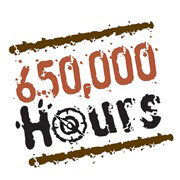by Ken Budd
Stress. A mother’s stress. That’s what changed Corinne Cannon’s life.
Her son, Jack, was a colicky, restless, challenging baby. With each scream, with each tense, trying, bleary-eyed night, she grew more frustrated—even angry. And then she had an epiphany:
If I have resources, and I feel like this, what is it like for mothers who have nothing?
Corinne Cannon founded the DC Diaper Bank while raising an infant son and working a full-time job.
Families with kids are encouraged to volunteer at the DC Diaper Bank.
And that has long-term effects, right?
The first three years of a child’s life can fundamentally change their trajectory. If you have three years of poor brain nutrition, you can’t fix it when the child is nine. The damage is done.
So what is the diaper bank’s role?
Women face a lot of barriers to seeking help. Admitting that you can’t feed your child is terrifying, especially for a young mother. We want to alleviate the financial burden and the guilt, and we use the incentive of diapers or formula to connect mothers to social workers and other resources. I call these gateway resources. It’s a way to engage a mom who wouldn’t otherwise reach out.
You’ve said this job makes you cry. Why?
It angers me that children are going hungry. That women are reusing diapers or using fast food napkins for tampons. When we talk to volunteers or donors—when people think what it would be like to care for an infant without resources—they’re dumbstruck. Food stamps were cut about a year and a half ago by $1.3 billion over 10 years. But there was no conversation about the mental health aspects of a young mother listening to her baby cry because she’s hungry. We’re missing that part of the conversation—the reality of hungry children, children who are in physical pain from diaper rash, women who go without showers because they’d rather buy food than soap. That’s what makes me cry. Because we do not need to be here.
"People want to help...and that's where I find the greatest joy." (Photos courtesy of DC Diaper Bank)
How has the diaper bank brought you joy?
I never thought this is what I would be doing. This is not where I saw myself. But the more you say yes, and the more you say “please help,” the more things grow. We have over one thousand volunteers each year. People want to help—they’re excited to help—and that’s where I find the greatest joy. It’s made me more open to possibilities. And I hope that lesson carries over into the rest of my life.
Ken Budd is the host of 650,000 Hours, a web series and podcast launching in 2020. He is the author of the award-winning memoir The Voluntourist and his writing credits include The Atlantic, The New York Times, National Geographic, Travel + Leisure, The Washington Post, and many more..
Click here to subscribe to the 650,000 Hours blog. And please like our Facebook page!





